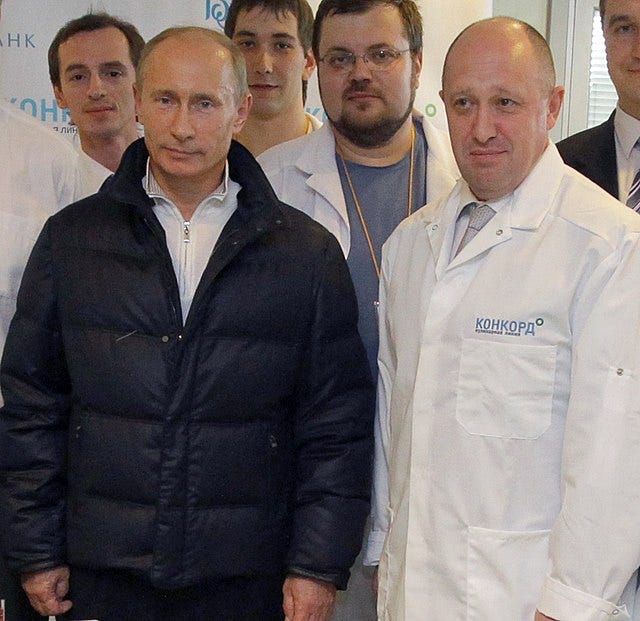Lessons from the Mutiny in Russia for the War in Ukraine
Maybe Putin Is Not So Prone to Escalation as We Believed
Since the beginning of Russia's invasion of Ukraine, analysts and officials have claimed that Putin will never back down; that he needs a face-saving win (i.e. Ukrainian territory) to end his war. U.S. officials also have decided to not give Ukraine certain weapons systems to prevent Putin from escalating.

Events yesterday undermined these assumptions. Putin talked tough in his national address. He sounded like someone preparing for a big fight. But when faced with the difficult decision of trying to stop Wagner mercenaries with major force, he backed down. In this game of chicken, we swerved off the road. He didn't escalate. He didn't need a face-saving off-ramp to declare victory. When facing the possibility of really losing to Wagner mercenaries coming into Moscow, he instead capitulated. Rather than doubling down with overwhelming force to crush the mutiny, Putin accepted humiliation instead. He was the rat trapped in the corner that so many Putinologists have told us to fear. But he didn't lash out & go crazy. He didn’t take the riskier path of fighting a civil war. He negotiated. Moreover, he cut a deal with someone he just hours earlier labeled a traitor. This decision made Putin look weak. We still do not know the details, but the compromises he made yesterday may even further undermine his grip on power at home. But he took that path anyway.
The lesson for the war in Ukraine is clear. Putin is more likely to negotiate and end his war if he is losing on the battlefield, not when there is a stalemate. Those who have argued that Ukraine must not attack Crimea for fear of triggering escalation must now reevaluate that hypothesis. The sooner Putin fears he is losing the war, the faster he will negotiate.
For American and other NATO leaders, the policy implications are also clear — provide better and more weapons and better and more sanctions as fast as possible. That was true months ago as I wrote in Foreign Affairs in January. (You can read that essay here.) After the events in Russia yesterday, it’s even more true today.


That's an important lesson or perspictive I hadn't noticed in the chaotic events of the last few days. When faced with a force that he couldn't reliably overpower that risked his hold on power Putin cut an embarrassing deal. Definitely worth taking note of.
One interesting take away is that Wagner forces crossed the border and the guards surrendered. Then passed thru another check point with no opposition.
Then Wagner was able to enter Rostov-on-Don and capture the military headquarters which is in the center of the city, again with little to no opposition. The city is also a logistics hub for units operating in Ukraine. Begging the question why didn't the Russian Army attempt to stop the advance at the city's outskirts?
Possible answers, the garrison was ordered not to engage. The garrison refused to obey. The command did not want collateral damage, i.e. the death of Russian civilians.
Whatever the reason, the response from Putin was weak and could provoke others to attempt a similar operation. It is doubtful that this will play well in Beijing. A successful coup means a change in leadership. Obviously if that happens Beijing would want a regime friendly to the PRC. How far will Beijing go to either keep Putin in power or obtain a regime that remains in the CCP's sphere of influence?